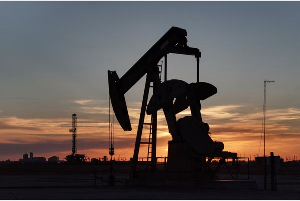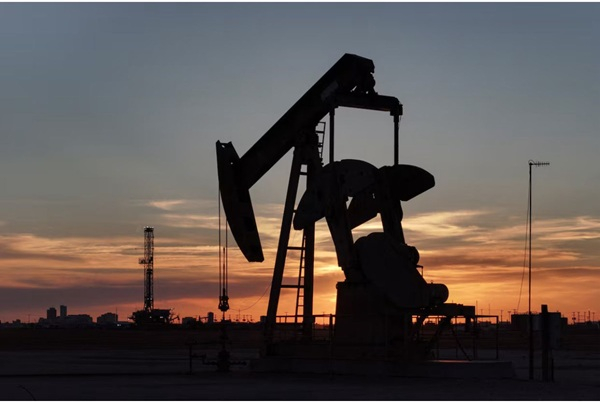 A drone view of a pump jack and drilling rig south of Midland, Texas, U.S.
A drone view of a pump jack and drilling rig south of Midland, Texas, U.S.
Oil prices rose about 1% in early trade on Monday after OPEC+ announced a more modest monthly increase in production than expected, tempering some concerns about supply additions.
Brent crude futures rose 63 cents, or 1%, to $65.16 a barrel by 2310 GMT, while U.S. West Texas Intermediate crude was at $61.46, up 58 cents, or 1%.
“The price jump has primarily been boosted by OPEC+’s decision for a lower-than-expected production hike next month as the group intended to buffer the recent slump in oil markets,” said independent analyst Tina Teng.
“However, crude prices will likely remain weak due to the gloomy global economic outlook,” she added.
On Sunday, the Organization of the Petroleum Exporting Countries, along with Russia and some smaller producers, announced it would increase production by 137,000 barrels per day (bpd) from November, maintaining the same modest monthly increase as in October, amid persistent concerns over a looming supply glut.
In the run-up to the meeting, sources said Russia was advocating for an output increase of 137,000 bpd to avoid pressuring prices, but Saudi Arabia would have preferred double, triple, or even quadruple that figure to regain market share more quickly.
“OPEC+’s decision to increase production by another 137,000 bpd in November could be manageable in light of rising supply disruptions due to tightening sanctions by the U.S. and Europe against Russia and Iran,” ANZ analysts said in a note on Monday.
“Meanwhile, Ukraine continued to intensify its attacks on Russian energy facilities, targeting the Kirishi refinery, one of Russia’s largest refineries, with an annual processing capacity exceeding 20 million tonnes,” the analysts added.
The Group of Seven nations’ finance ministers said last week they would take steps to increase pressure on Russia by targeting those who are continuing to increase purchases of Russian oil and facilitating circumvention of sanctions, as part of efforts to cut off Russian revenues due to Moscow’s invasion of Ukraine.
